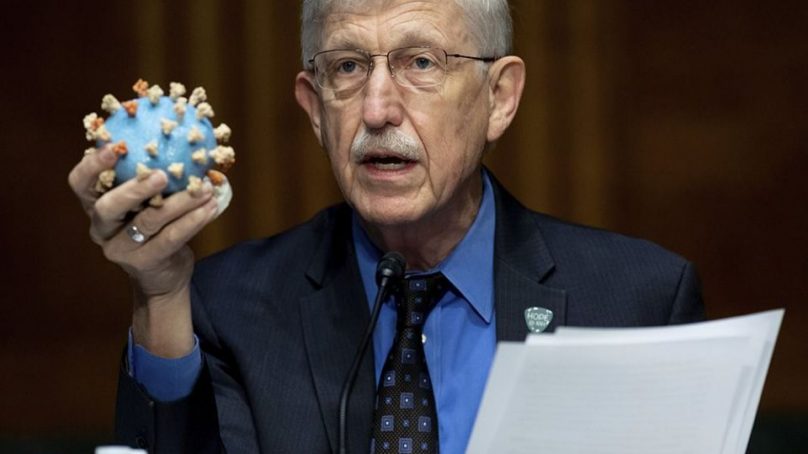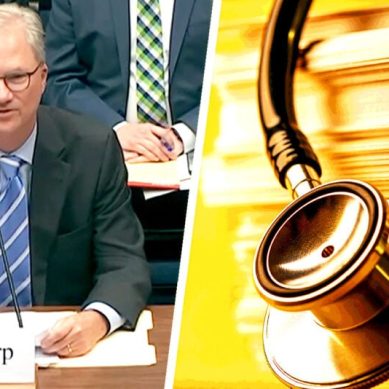
The United States has announced that it will spend big on research into ‘long Covid’ – the long-lasting health effects of a SARS-CoV-2 infection. The funding comes as the scientific community is just starting to recognise the impact of the condition and unravel why it occurs.
On 23 February, the US National Institutes of Health (NIH) announced an initiative worth $1.15 billion over four years to fund investigations of the condition and listed some first priorities.
Symptoms of long Covid are wide-ranging and include fatigue, fevers and shortness of breath, as well as neurological conditions such as anxiety and depression and an inability to concentrate. They can appear weeks after a SARS-CoV-2 infection and linger for months.
The NIH has begun referring to the collection of after-effects as post-acute sequelae of SARS-CoV-2 infection, or PASC.
Some of the NIH PASC Initiative’s main goals are to better understand the biological basis of PASC, and what makes some people more vulnerable to the condition than others – with a view towards eventually finding treatments.
“We do not know yet the magnitude of the problem, but given the number of individuals of all ages who have been or will be infected with SARS-CoV-2, the coronavirus that causes Covid-19, the public health impact could be profound,” NIH director Francis Collins said in a statement announcing the effort.
A study of 177 people published last month determined that nine months after infection with SARS-CoV-2, one-third of them were still reporting symptoms such as fatigue. This shows that with more than 115 million Covid-19 infections worldwide so far, the number of people with PASC could be massive.
“Other than the general consensus that the phenomenon is real, all we really know are the questions,” says Steven Deeks, a physician and infectious-disease researcher at the University of California, San Francisco, who is leading a project to study people with long-lasting effects from Coovid-19.
One of the first projects the NIH has said it will fund is a recovery-tracking effort. Investigators will collaborate to record the recovery paths of at least 40,000 adults and children with SARS-CoV-2 in a ‘metacohort’, to observe who develops long-term effects and who doesn’t.
The metacohort will cover people of all ages, including pregnant women, to help researchers pin down the range of effects that people experience while recovering from an infection.
Such long-term tracking is necessary to gain a fuller picture of the phenomenon, says Carlos del Rio, an epidemiologist and infectious-disease physician at Emory University in Atlanta, Georgia, who has called for lengthy longitudinal studies to improve understanding of the disease.
A separate project will record the effects of Covid-19 on various organ systems by collecting evidence from autopsies. This type of analysis has so far indicated that the disease can destroy tissue in the lungs, as well as other organs – but researchers would like more detailed information.
In another effort, the NIH will host a bank of biospecimens such as blood, urine, faeces and cerebrospinal fluid from people with PASC; researchers will be able to access the samples to inform future studies.
People who have experienced Covid-19 and its long-term aftermath, including some researchers, have mobilized to argue that better attention should be paid to post-Covid effects.
Such groups are worried about whether and how researchers will take their experience into consideration, says Shobita Parthasarathy, director of the science, technology and policy programme at the University of Michigan in Ann Arbor.
“There is a concern among patients that their experience and knowledge won’t be taken seriously – that in the process of becoming a scientific inquiry, their experiences will not be used to guide the understanding of the condition.”
It’s a confusing and difficult illness to describe if you haven’t had it,” says Hannah Davis, who is one of the leaders of Patient Led Research for Covid-19, an international group of researchers and advocates who themselves have long Covid. “I think that working with patients will facilitate understanding of long Covid much more quickly.”
The NIH’s name for the condition, PASC, is more accurate than some others that researchers have proposed, says Davis, but it is a departure from ‘long Covid’, the name that people with the condition have themselves settled on.
So far, the NIH has received $3.6 billion from the US Congress to fund Covid-19-related work and research, in addition to the $1.15 billion for studies of PASC.
In February, the UK National Institute for Health Research announced it was investing £18.5 million ($25.9 million) to fund four studies of long Covid.
“It is of course impossible to truly understand the long-term consequences of a disease that did not exist a year ago,” says Deeks. “We are doing our best, but this will take time.”
- A Nature magazine report











